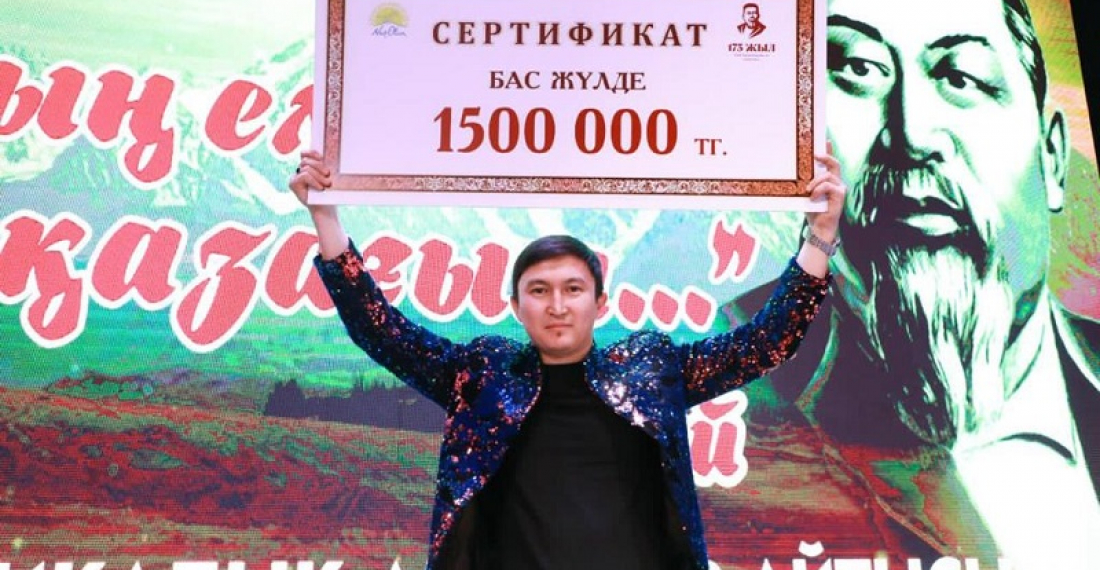In Kazakhstan, improvised oral poetry, spoken or sung to the accompaniment of traditional musical instruments, has for centuries been a source of entertainment. The Kazakh government has since independence in 1991 been keen to promote the tradition, known in Kazakh as Akyndar Aitysy, since this is seen as a way of consolidating national identity. Contemporary akyns (impromptu poets or singers) are loved and cherished in Kazakhstan and before the pandemic, people would pack large halls to witness the poetic showdowns.
In November, the Atyrau Region Akimat (administration) organised the first National Akyn Aitys contest which unfortunately had to be held without spectators because of the pandemic. The contest’s theme and slogan was “Kalyn elim, Kazagym… (Oh, my Kazakhs, my beloved people…).” This slogan is the first line from the famous same-name poem of Kazakh poet Abai Kunanbay, whose 175th anniversary was also marked this year.
National and local television channels streamed the two-day aitys. Twenty four akyns participated to win the Grand Prix for 1.5 million tenge (US$3,505.5) prize. Rauan Kaidarov, an akyn from Nur-Sultan, won the prize.
source: commonspace.eu with Astana Times (Nur Sultan)
photo: Kazakh National Aitys contest Grand Prix winner Rauan Kaidarov. Photo credit: the Atyaru Akimat/Astana Times (Nur Sultan)







